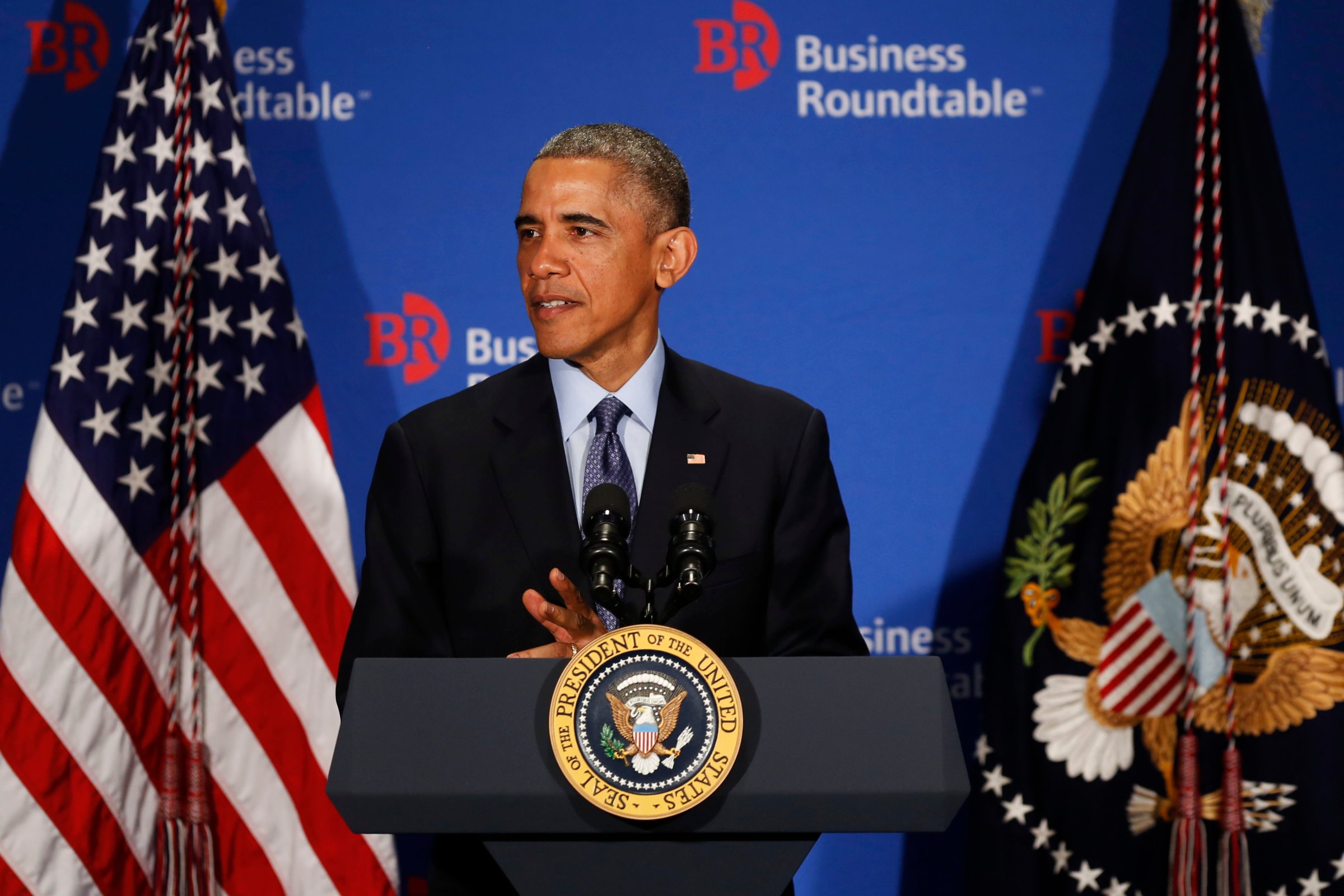
Congress appears ready to give the President authorization to train and equip the Syrian opposition for two years as part of major annual defense legislation expected to pass the House Thursday, despite concerns that the weapons will turn up in the wrong hands.
The likely passage of the $557 billion defense bill underscores that talk of the president’s recent immigration action “poisoning the well” doesn’t apply to matters with broad bipartisan support. And Congress’ begrudging acceptance of the extended train-and-equip authority—many hawks don’t believe it will be enough to accomplish the American goals in Syria and Iraq—also emphasizes the lack of other politically viable options.
“This effort on the part of the President will ultimately fall short,” says Republican Rep. Trent Franks of Arizona, who supports American boots on the ground to fight the Islamic State in Iraq and Greater Syria [ISIS]. “I think unfortunately it will be too little too late.”
Still Franks says he will likely vote for the National Defense Authorization Act, which includes the provision.
“I’m Mr. National Security—I’m not going to vote against the NDAA unless they absolutely force me to do so,” he added.
Other Republicans said they would likely vote for the bill even if they don’t yet trust the Administration’s vetting process. The bill requires the Administration to inform Congress at least 15 days before the first transfer of the goals of the assistance, what is provided and the number of U.S. armed forces personnel involved, in addition to periodic updates.
“The big concern has always been how do you keep these guys on our side and what do they do with the weapons a year or two after the conflict,” said Republican Rep. Jack Kingston of Georgia, who is leaning to support the bill. “I don’t know that the Administration has adequately answered that question, however, having said that, we’re in a damned-if-we-do and damned-if-we-don’t [situation] because American people don’t want boots on the ground.”
House Speaker John Boehner said Thursday that he wanted President Obama next year to submit a new authorization for the use of military force to defeat ISIS, which some outside legal experts say is necessary since Obama is relying on congressional authority provided more than a decade ago in the aftermath of 9/11.
“The White House needs to show some urgency because the strategy isn’t reversing the terrorist momentum on the ground,” said Boehner. “I’ve got grave concerns that the plan he’s put in place is not going to accomplish the goal of defeating and destroying [ISIS]. We need a more robust, comprehensive strategy and that should start with a new authorization of the use of military force.”
Rep. Adam Smith, the top Democrat on the House Armed Services Committee, made sure on the House floor Thursday that his colleagues knew there was no such authorization in the NDAA, knowing that it could imperil support for the bill, which has passed every year for the past 53 years.
“I really wish to emphasize for this body that this train and equip authority is just that,” said Smith. “It in no way, shape, manner or form authorizes the use of military force. And I think it’s the best approach. I don’t want U.S. troops fighting this war. We have learned that U.S. troops cannot win the battle against the evil ideology that Al Qaeda and ISIS have promoted. We need local partners and that’s what this bill helps us do.”
House Armed Services Committee Chairman Buck McKeon and Senate Armed Services Committee Chairman Carl Levin led the NDAA effort, and both will retire after this year after decades in Congress. On the floor Thursday, McKeon concretely summarized how difficult it would be for a Congressman to explain why he would vote against the NDAA.
“What makes this bill such an important piece of legislation are the vital authorities contained within,” said McKeon. “It provides resources for the mission in Afghanistan. It funds our military operations against [ISIS] in Iraq and Syria. It pays our troops and their families. It keeps our Navy fleet sailing and military aircraft flying. It maintains a strong nuclear deterrent.”
More Must-Reads from TIME
- Why Trump’s Message Worked on Latino Men
- What Trump’s Win Could Mean for Housing
- The 100 Must-Read Books of 2024
- Sleep Doctors Share the 1 Tip That’s Changed Their Lives
- Column: Let’s Bring Back Romance
- What It’s Like to Have Long COVID As a Kid
- FX’s Say Nothing Is the Must-Watch Political Thriller of 2024
- Merle Bombardieri Is Helping People Make the Baby Decision
Contact us at letters@time.com